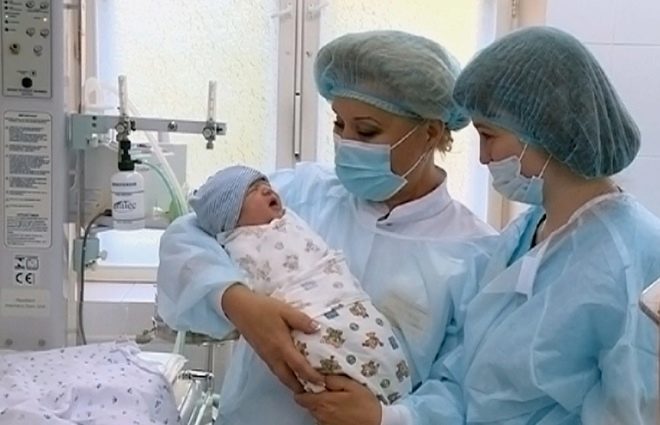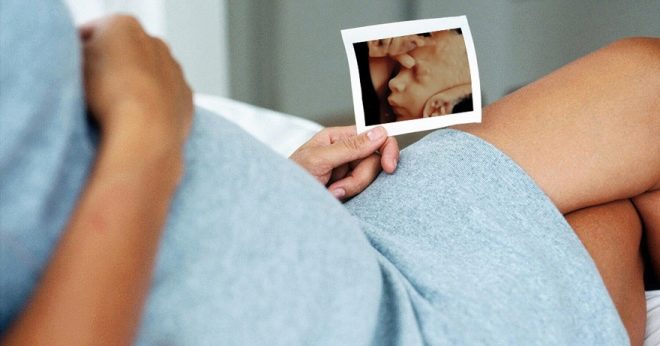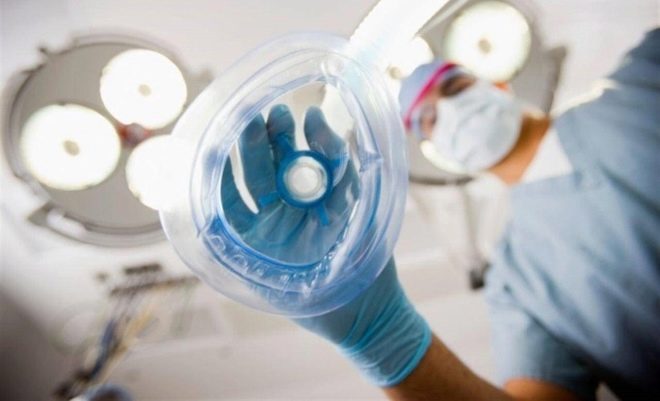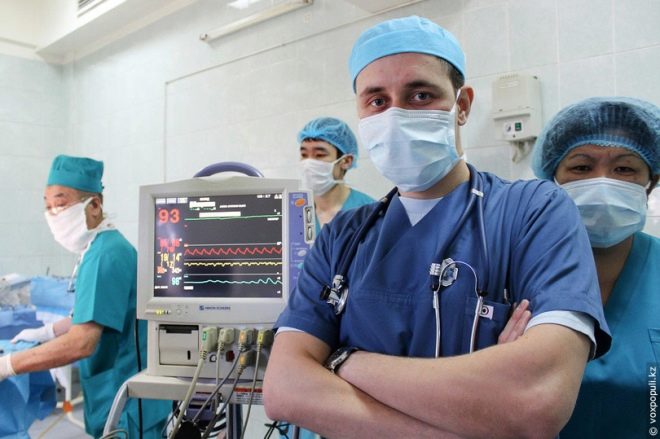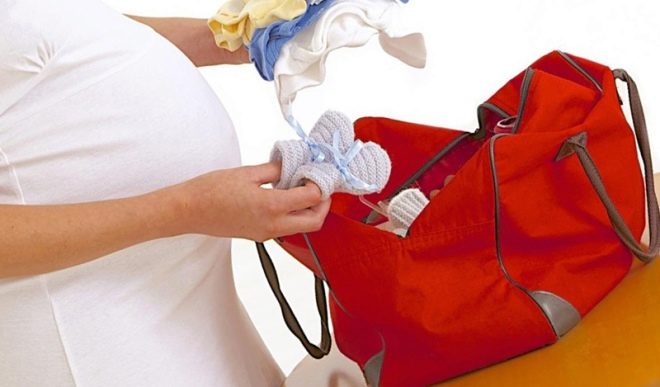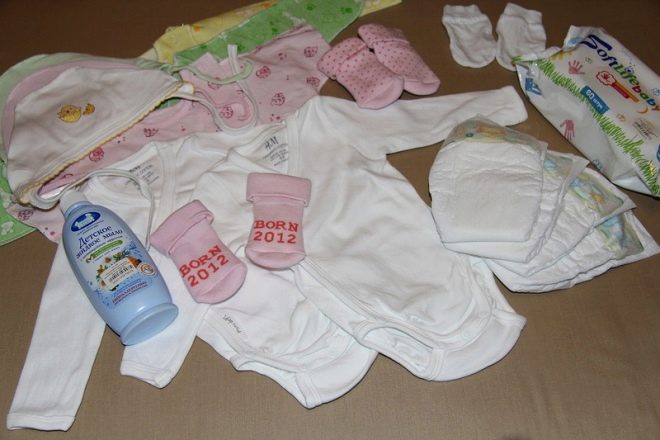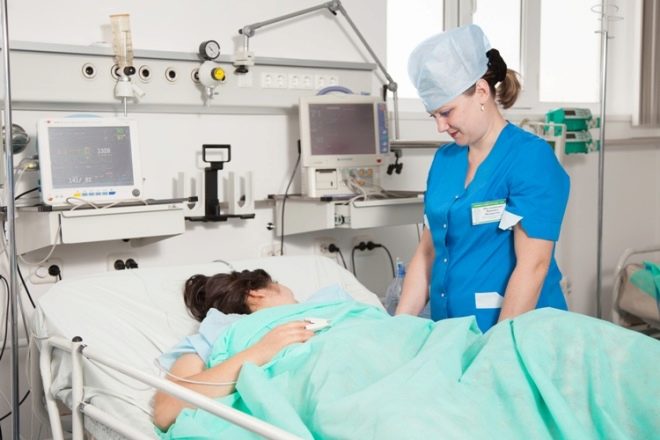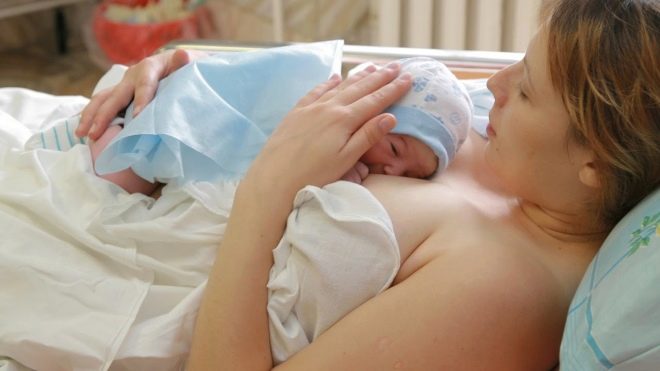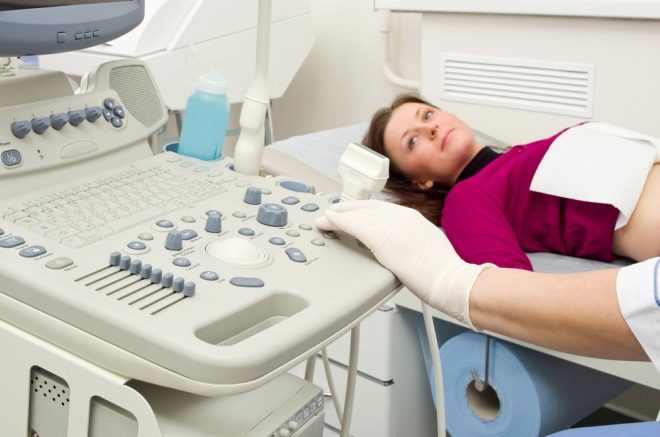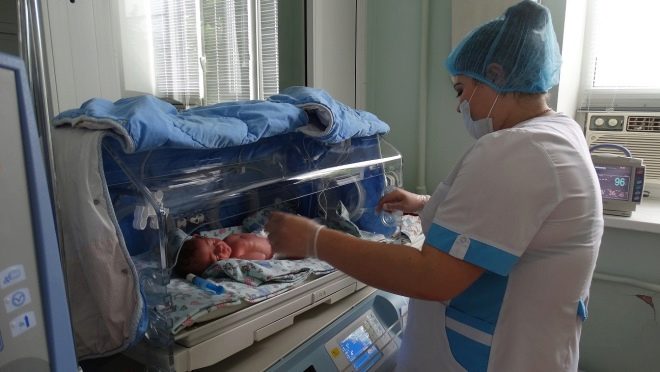How many days are in the hospital after cesarean section and what does it depend on?
Many women have heard that after a cesarean section, it takes longer to lie in the hospital. In this article, we will tell you how many days after the operative delivery a woman can go home. What are the reasons why she may be detained in the hospital for a longer time?
Terms of hospitalization and preparation
If a woman has a caesarean section for medical reasons and the operation is scheduled, usually she is tried after 39 weeks of pregnancy. At this period, the baby is considered fully mature, so the risk of respiratory failure is minimal.
It is recommended to go to the hospital about 3-5 days before delivery. This time is necessary so that doctors can prepare as best as possible for operative labor.
Preparation includes a large range of activities. Doctors necessarily compile a detailed obstetric history of the future mother (analyze the number of births, abortions, miscarriages, gynecological operations), take into account the presence of possible concomitant diseases, including chronic ones.
In case of concomitant illnesses, consultations of related specialists (cardiologist, nephrologist or other specialties) are often needed in order to plan the operation, select and calculate the doses of medications safe for the woman.
Before a planned cesarean section, it is considered mandatory to undergo ultrasound and CTG in the maternity hospital.
It is very important for the physician who will operate on the woman to know all the nuances of the child’s location and development - posture, head tilt, his estimated weight, head diameter. You also need to make sure that the crumb feels good - his heart rate, perturbations and other parameters, indicating his well-being, are normal.
They take tests for HIV, syphilis, viral infectious hepatitis, as well as general blood and urine tests and biochemical blood tests.
When certain indications do coagulogram - a blood test to identify specific factors of blood clotting. Be sure to obtain from the laboratory confirmation of the blood group and the Rh factor of the expectant mother in case she needs urgent blood transfusions.
Approximately one day before the operation, an anesthesiologist is working with a pregnant woman. The doctor and the patient meet, the doctor finds out the weight and height, especially the future mother's physique, reveals contraindications to this or that type of anesthesia and certain drugs that are used for these purposes.
Together with the patient, the doctor is determined with the type of anesthesia - spinal, epidural or general.
Before the operation, the woman is not recommended to eat from the evening, it is only allowed to drink sweet tea
In the evening before bedtime, the expectant mother receives drugs for premedication - usually barbiturates or other means that will ensure a good sleep for her throughout the night. Do not worry, namely, sleep soundly is important so that during the operation there will be no spontaneous jumps in blood pressure.
On the morning of the appointed operation, the woman shaves her pubis, in order to remove all hair from the areas adjacent to the surgical zone, put a cleansing enema to clean the intestines and reduce the pressure of its loops filled with feces on the body of the uterus.It is recommended that all pregnant women should wear compression stockings (not lower than the second degree of compression) or bandage the legs with an elastic bandage. This is necessary in order to prevent the development of thromboembolism in the early postoperative period. After that, the woman is escorted to the operating room, where she is already awaited by the anesthesiologist and the surgical team, who are ready for a cesarean section.
What to take with you?
The list of things that are recommended to be taken to the obstetric institution with you, if operational delivery is coming, is somewhat larger than for the upcoming physiological delivery. Although a pregnant woman should not ignore the likelihood of emergency surgery, if something goes wrong in the birth process.
That is why it is recommended to collect things in a maternity hospital taking into account possible surgical deliveries.
From documents future mother definitely need to take passport, compulsory health insurance policy, SNILS, exchange card and birth certificate. If in the selected maternity hospital they provide a service for issuing a birth certificate (which you can learn about in advance), they will bring with them a marriage certificate and a photocopy of the spouse's passport.
If a woman has associated chronic diseases, it is important not to forget to take a medical card so that doctors can imagine what kind of consultations of allied specialists at the stage of preparation for childbirth may be needed.
For a woman, you will need to take a new disposable razor, soap, toilet paper, wet wipes, a comb, a phone and a charger for it. You will need washable slippers (not rag), a towel, bathrobe and nightgown.
Clothes will be needed before delivery, because after the operation you will need to be in sterile shirts, which will be issued every day.
For a child, it is worth taking a few diapers for newborns, 2-3 shirts and sliders, if you do not plan to swaddle your baby, hats.
You may need a breast pump as well as a pacifier. For the operation, take two packages of medical elastic bandage or purchase compression stockings in the orthopedic salon in advance.
Early rehabilitation time
Immediately after surgery, a woman is transferred to the intensive care unit or to intensive care unit if certain complications arise during the surgical procedures. About 7 hours a woman spends under the supervision of medical personnel. They measure her pressure, monitor how the uterus shrinks, measure the temperature, inject painkillers and reducing drugs. Particular attention is paid to the process of recovery from the state of anesthesia.
After 6 hours, the woman is transferred to the ward. After another 2-3 hours, she may begin to turn on one side, then sit down and carefully stand up. A child may be attached to the chest as in the operating room if the birth was under spinal or epidural anesthesia, and may be brought for the first time after the mother sits down and starts to get up.
At first, care of a newborn may be too heavy for a newly-made mother, therefore, on the first day, the baby is usually brought only for feeding. But already on the second day, if the state of the puerperal is normal, the baby can be transferred to a joint stay, if it is provided for by the rules of the perinatal center or maternity hospital. The sooner a woman will rise with the observance of precautionary measures, the better the prognosis for rehabilitation.
An earlier return to physical activity reduces the likelihood of adhesions, inflammation, speeds up the recovery process.
After cesarean section, they used to write out only for 9-10 days after removing the sutures and observing them for a couple more days.
Today is considered a standard statement on the 5th day after the operation. Antibiotics, which used to be pricked by everyone without exception for the prevention of inflammation, are being made today only to those who have the likelihood of complications, there were complications in the operational process.The course of treatment with antibiotics, which used to be 7-10 days, today, thanks to new drugs, has decreased to 3-5 days. A woman removes stitches in the antenatal clinic after discharge after about 7-8 days. More than five days in the hospital after the operation usually do not hold, if there are no complications in either the mother or the newborn.
What affects the terms of discharge?
Medical standards approved by the Ministry of Health do not imply discharge before the fifth day, even if mother and baby feel great.
The thing is that not all pathologies can be seen in the first few hours and days, so a five-day observation of the child and his mother is considered optimal and the minimum acceptable. For a longer period in the maternity hospital, they can leave a puerperal who has signs of complications - high body temperature, drops in blood pressure, bleeding, signs of suppuration in the postoperative wound area, hypotension or uterine atony. Inner sutures on the wall of the uterus are given special attention, and therefore on the third or fourth day in the maternity hospital they usually do a control ultrasound and only then, if everything is in order, they prepare an extract.
If complications cannot be eliminated within 2-4 days, then a woman can be transferred to a gynecological hospital, and the baby can be discharged home with her father or grandmothers. This measure is rarely used, because every day is important for establishing breastfeeding.
But if a woman is shown heavy antibiotics, repeated surgery, then breastfeeding is likely to be temporarily not recommended.
For a few days, a mother with a child can be detained in the maternity hospital even if the child himself has health problems. But such a solution to the problem today is rare. If the baby needs further medical observation, treatment, he and his mother are transferred from the maternity hospital by special medical transport to the early childhood department of the children's hospital.
After discharge
Complications after surgery may be not only early but also late, therefore, it is important for a woman to strictly adhere to the recommendations after discharge.
- It is forbidden to lift weights above 3-4 kilograms for 6 months.
- Do not swing the press, get up sharply out of bed, so as not to damage the seams.
- Be sure to treat the seams with green paint, dry the wound with hydrogen peroxide. Before removal of sutures, it is recommended to wear and daily change the surgical postoperative dressing.
- In the first 2-3 months it is desirable to wear a postoperative bandage.
- Sexual relations should be abandoned until the complete cessation of vaginal puerperal discharge (lohii), sex can be resumed 8 weeks after the operation with the use of barrier contraceptives (condoms).
- A woman should avoid constipation and abdominal distention, and therefore it is important every day to empty the intestines, alone or with the use of laxatives, not to eat foods that lead to increased gas formation.
In the hospital today for a long time are not. Under the new standards are exactly as much as you need by the minimum standards. Therefore, the woman should not worry about the timing of discharge. In 90% of cases, on the fifth day after surgery, the puerperal sent home with the baby.
The timing of discharge after childbirth and the so-called early discharge can be found in the following video.

